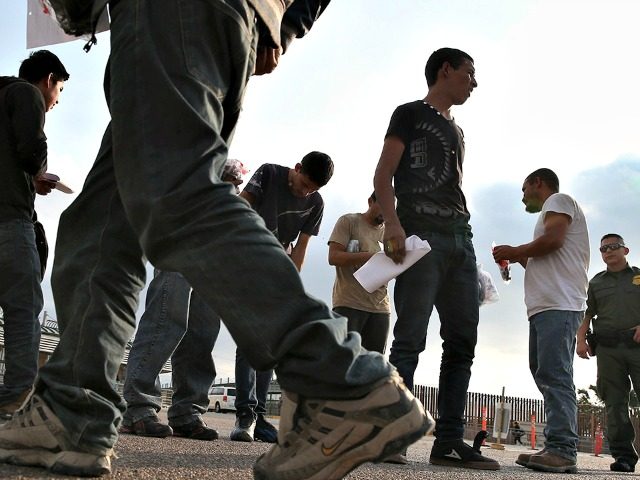The Department of Justice filed an amicus curiae, or “friend of the court” brief Friday defending Texas’s tough Senate Bill 4 (SB 4) in the lawsuit seeking to prevent the law, which seeks to rein in the state’s so-called “sanctuary” cities, from taking effect.
SB 4 was signed into law by Texas Governor Greg Abbott this May and promptly came under legal challenge from Democrat-run towns and cities in collaboration with left-wing open borders groups. Last month, Orlando Garcia, a federal judge of the U.S. District Court for the Western District of Texas in San Antonio, blocked certain sections of SB 4 that prevented cities from formally adopting policies that frustrate federal efforts at immigration enforcement.
The State of Texas promptly asked the U.S. Court of Appeals for the Fifth Circuit Court in New Orleans to stay Judge Garcia’s preliminary injunction and allow SB 4 to go into effect while the lawsuit pends. Friday’s brief from the DOJ is offered in support of that effort.
“The decision below severely undermines the United States’ interests in cooperation with state and local governments on immigration enforcement,” the Department of Justice tells the court in its brief, calling Garcia’s decision “manifestly erroneous.”
The plaintiffs seeking to have SB 4 stopped include liberal-run Texas municipalities like Dallas, Travis County (home to Austin), and the tiny border town of El Cenizo, along with pro-illegal alien NGOs like the American Civil Liberties Union and the League of United Latin American Citizens. Their primary argument is the same as brought to bear against Arizona’s SB1070: that federal immigration law preempts state and local agencies from cooperating with federal authorities in the ways SB 4 demands.
The Department of Justice categorically rejects this notion in its brief, saying:
Although the federal government possesses broad power over immigration, enforcing the laws concerning removable aliens is a formidable challenge. To meet that challenge, the federal government works with state and local governments. These cooperative efforts are critical to enabling the federal government to identify and remove the hundreds of thousands of aliens who violate immigration laws each year.
The case is City of El Cenizo v. Texas.

COMMENTS
Please let us know if you're having issues with commenting.